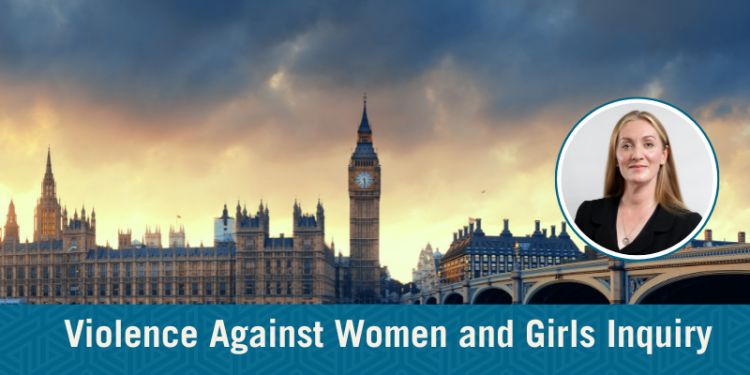Dr Sam Lewis tackles rural domestic abuse in Parliamentary inquiry

Dr Sam Lewis submitted evidence to the Home Affairs Select Committee Inquiry on Violence Against Women and Girls (VAWG).
The inquiry was concerned with funding provisions for domestic abuse services, and the data that underpin funding decisions.
Dr Lewis, with Cumbria Constabulary, the Office of the Police, Fire and Crime Commissioner (OPFCC), and Cumbria Gateway, submitted evidence which built upon Home Office police STAR board-funded research (with Professor Dan Birks, Sat Kartar Chandan, and Natacha Chenevoy) on the geospatial and contextual patterns of rural domestic abuse.
Rural domestic abuse
Almost 11 million people live in rural parts of England and Wales. International research has found higher rates of domestic abuse in rural areas than in urban areas. Additionally, rural victims face unique barriers to accessing support. However, the particular needs of this group, and the practitioners who support them, are rarely considered in policy debates.
Their submission was designed to address this.
The 'dark figure' of domestic abuse
There is a large 'dark figure' of domestic abuse that goes unreported to, or unrecorded by, the police. Their research suggests that the 'dark figure' may be particularly acute in rural areas. Many local service providers, including Victim Support, NHS Trusts, County Councils, probation services and housing associations, hold domestic abuse (DA)-related data. However, these data tend to be held in silos.
Barriers to data linkage preclude their use to generate a more complete picture of local crime. Across England and Wales, then, police data continues to shape local funding decisions.
Domestic abuse data
Local domestic abuse service providers provide an essential service and hold a wealth of domestic abuse data. At present, however, the case management systems used by small, third sector organisations do not always produce robust data that is amenable to analysis.
Central government provides various VAWG funding opportunities, that local areas can apply for. Sometimes, however, the bidding criteria (eg, related to population size, or numbers at risk) make it hard for rural forces to apply. Thus, rural areas may be disadvantaged.
Drawing on both their research and the experience of DA service delivery in Cumbria, Dr Lewis and her partners made five recommendations to support rural (and other) communities:
I. The Government has committed to halving VAWG in a decade. We recommend that particular attention is paid to the distinct needs and experiences of rural areas, so that both urban and rural communities benefit equally.
II. To that end, we recommend that Government-led discussions of VAWG, including by the Home Affairs Committee and the Public Accounts Committee, embed the voices of rural service providers, and academics working on VAWG in rural communities, in their deliberations.
III. We recommend the establishment of a national, minimum dataset and reporting standards for third sector DA service providers, to inform service delivery. Many grassroots organisations do not have the IT skills to provide this, or the funding to procure it. We recommend the provision of financial and practical support to develop robust data collection and management systems and generate meaningful, data-driven insights.
IV. Ensure that the bidding criteria for national VAWG funding streams are sufficiently flexible to allow applications from rural forces.
V. Gather outcome evidence from local police forces in receipt of Home Office funding for specific initiatives.
Dr Lewis says:
We welcome the Government's plans to halve VAWG in a decade, and want all communities to benefit. We will support policymakers to address the particular challenges faced by women and children in rural communities.
Dr Lewis is a member of the Centre for Criminal Justice Studies, and leads the Feminist Research into Violence and Abuse (FRIVA) network at the University of Leeds. FRIVA has over 50 academic members who work to improve the lives of women and marginalised groups. She is also Co-Chair of West Yorkshire Police's VAWG Scrutiny Panel.




